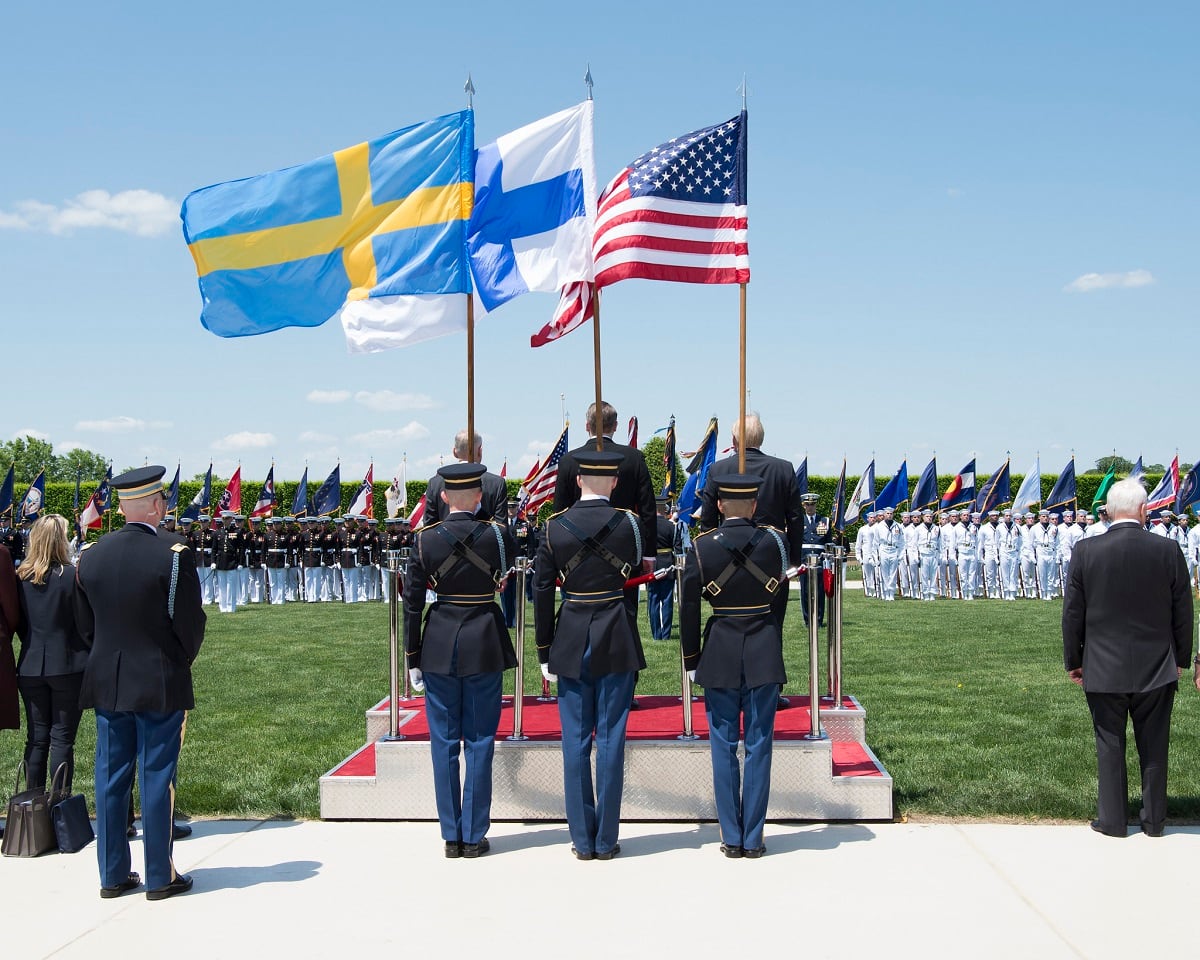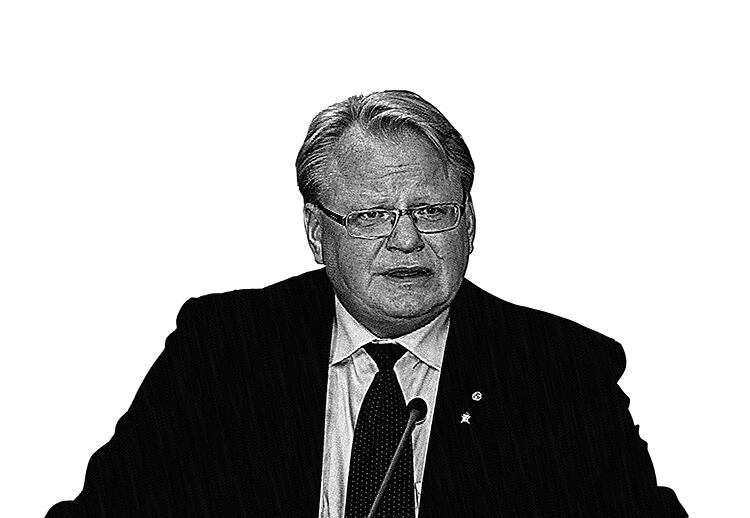WASHINGTON — On May 8, Swedish Defence Minister Peter Hultqvist arrived at the Pentagon to sign a letter pledging greater trilateral cooperation between his nation, the United States and Finland. After the event, he sat down with Defense News for a one-on-one interview about creating better dialogue with partners, defending the Baltic Sea and potential joint procurement.
Sweden just signed a new statement on trilateral defense cooperation with the U.S. and Finland, but it’s fairly broad language. What do you see as the most concrete part of the agreement?
We need to work in a deeper way with exercises [in order] to develop interoperability. I think this agreement will make it easier for us to sit down together and plan for that sort of activity. That is one example. I think also that we will have intensified [discussions] on defense policy on both the political level and the military level. So I think this is a platform to develop different sort of activities that can make more security and stability in our part of Europe.
So it creates a way forward for more dialogue?
Yes. And the dialogue is the basic platform if you want to do things in reality.
Including more exercises, it sounds like.
Yes, that’s one very important example. We can also coordinate strategic communication, for example, and share information.
Could you imagine some sort of joint air-defense network coming out of this?
I think we have a platform now, and then we have to discuss together what we can do from a trilateral point of view. But the main topic is, as I said, to develop interoperability. The building of institutions ― we haven’t discussed that.
What about joint procurement more broadly?
That’s not a topic we’ve discussed. We haven’t discussed that question, so I have no comments to it.
RELATED

Sweden was cleared by the U.S. State Department to buy the Patriot missile system earlier this year, but at a significantly higher price than had been discussed. Are you currently in negotiations around that?
We will come back when we have something to say. I have no comments.
You’ve said in the past building up forces on the island of Gotland is key for Sweden’s future defense. How is that process going?
It’s going very well, and we will have integration of a new regiment on May 21. It’s working very well. But we also have a defense commission, they have a mission to see if we need anything more on Gotland island. They will come with their final report in May 2019.
What is the impact of having that regiment there?
Its very, very important to have a permanent military presence on the island of Gotland. It’s a mechanized company, a tank company, with air defense systems. The control of Gotland is from a geo-strategic point of view very important for the situation in the Baltic Sea region. That has direct impact on the Baltic situation, direct impact on Finland and on the Swedish mainland. So I see this as a strategical investment.
Sweden has been supportive of the EU Permanent Structured Cooperation on Security and Defence initiative, but the U.S. has been wary. Did that topic come up during your talks with U.S. Defense Secretary Jim Mattis?
My view, and I’ve been very clear to U.S. representatives about that, which is we are now in a decision-making process around this that will open up, also, connections to third parties, third countries, countries that are not members of the European Union. And also in the European defense fund project, we will open up for industries that [are] owned by [non-EU nations], but based in the European Union. And that’s very important for Sweden because we have British-owned companies and U.S.-owned companies in our defense sector. What we talked to Secretary Mattis [about], that will stay in that room. But I have been clear about this to all U.S. representatives that have been interested to hear.
Sweden has considered joining the Nuclear Weapons Ban Treaty, which the U.S. is against. Where does that stand?
We are now doing our research around this, the impact on our defense cooperation with others, and also the impact on the [Treaty on the Nonproliferation of Nuclear Weapons]. We see that as the main treaty, and we also research around the impact on that treaty if we signed this ban treaty. And this research will be delivered in October of this year, and after that we will go into some sort of process to make a decision.
RELATED

There were reports that the U.S. has said signing the treaty could impact the military relationship with Sweden.
I have no comment on that. We have made this agreement today, and I think what we [need to] discuss is how to go further with the cooperation we have.
Sweden is in the process of developing a “total defense” concept that would militarize the country in case of invasion. Does that need more funding?
We have a need of money for both military defense and civilian defense, and now we have [a] need of money for total defense. We have started to build up the Swedish defense forces again. That will be a very long process, and that will take a lot of resources to do that. But also there is a new trend in [the] West, over $3 billion on defense until 2020. That will cover the next generation of fighters, next generation of submarines.
Aaron Mehta was deputy editor and senior Pentagon correspondent for Defense News, covering policy, strategy and acquisition at the highest levels of the Defense Department and its international partners.








